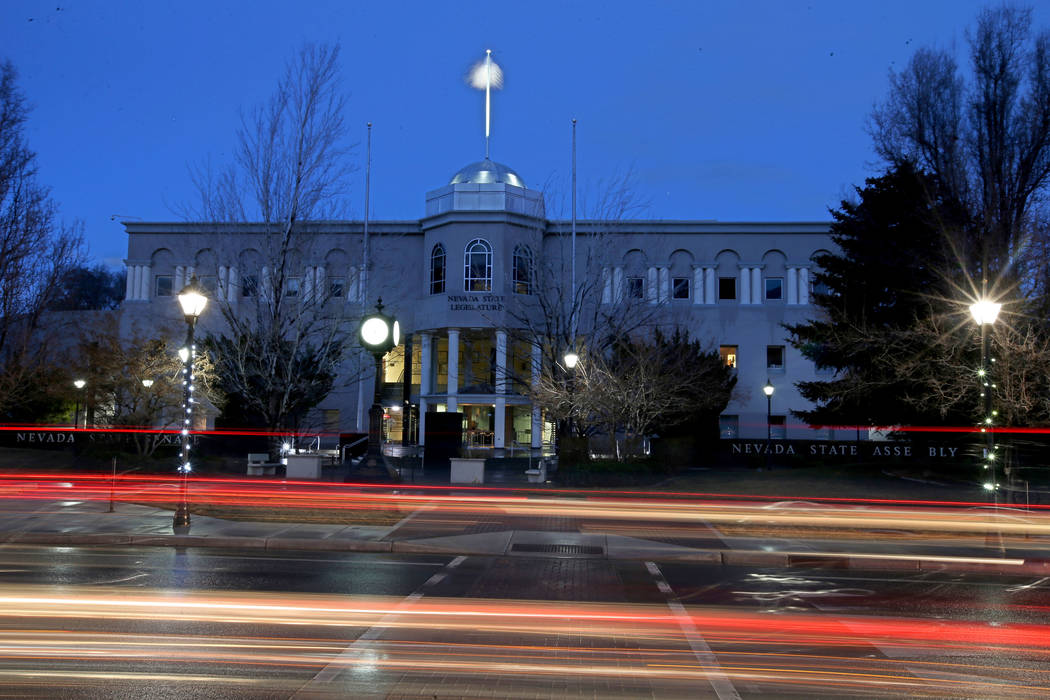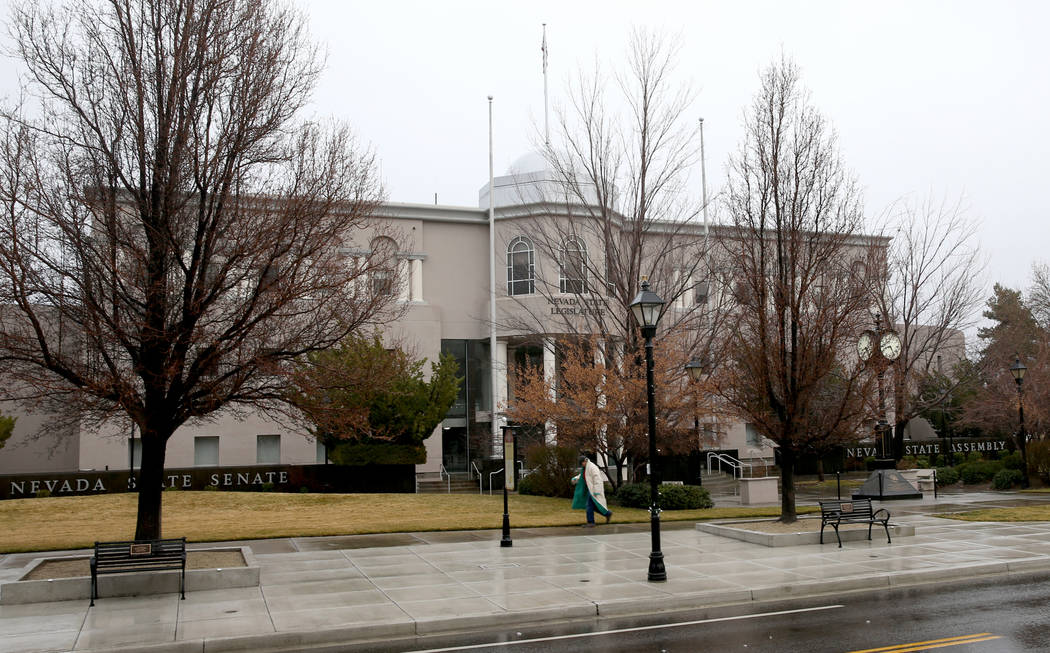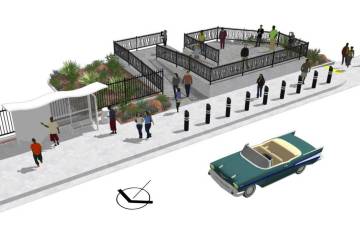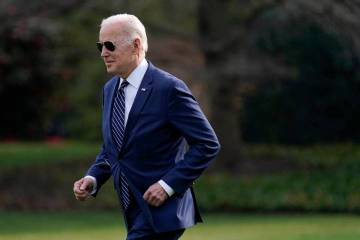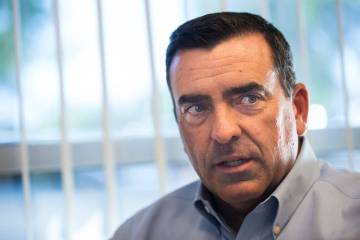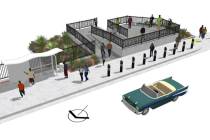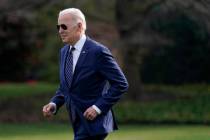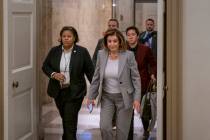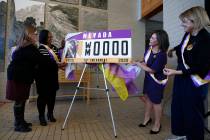How to spend $1B windfall will be hot topic at Nevada Legislature
CARSON CITY — With nearly $1 billion more at their disposal over the next two years, Nevada lawmakers are likely to devote much of the next four months looking at how to allocate that windfall to the two largest categories of state government spending: education and health care.
Competing for their attention will be state tax policy and overall spending for general government support. Gov. Steve Sisolak’s proposed budget calls for extending two soon-to-sunset taxes to help fund some of the proposed higher spending, which includes pay raises for K-12 and state government employees.
Following on those topics are expected measures for managing the state’s fledgling but fast-growing cannabis industry and proposals related to a host of criminal justice issues, including gun control.
As the 80th session of the Nevada Legislature gets underway Monday, here’s a rundown on this year’s likely top topics:
Education
About one-third of the $946 million in increased state general fund spending proposed for the next two-year budget cycle is related to education, which in itself constitutes half the general fund budget. The governor proposed a $180 million, 3 percent cost of living raise for K-12 personnel, and his budget funds 2 percent merit pay increases for educators along with the costs of upping enrollments.
Much of the education agenda will be uncontroversial, or at least readily approved. Where partisan differences might arise, they likely will be squelched under the weight of the Democrats’ legislative dominance. The party holds both chambers and a supermajority in Assembly.
Republicans do hope to advance a plan that would inject funding into a school choice program. Educational Savings Accounts were created in 2015 to provide families with state funds to educate children in private schools, but funding was first rejected in the courts on constitutional grounds, then defeated in the Legislature in 2017. Republicans hope to win funding this year by putting it toward helping bullied students switch schools.
Health care and human services
Some $528 million in added spending proposed this year is the result of increased health and human services expenditures. Again, while there are ideological differences among lawmakers, not much substantive debate is expected, and much of the added spending is to offset increasing patient and client caseloads and decreasing federal funding.
Sisolak has proposed increases in some social services programs, such as senior nutrition, autism services, family planning and behavioral health. Some of these are likely to be poker chips in a broader government spending debate.
Government spending, wages and taxes
Besides proposing 3 percent raises for state workers, Sisolak in his Jan 16. State of the State address reaffirmed his support for their right to collective bargaining. There is little if anything the Republican legislative minority can do to block any measure sanctioning the move.
There is also likely legislative majority support for raising the state’s $7.25 hourly minimum wage, although it’s not clear yet by how much. A return to pre-2015 rules on prevailing wages for school and public works projects also seems likely.
Where Republicans might have leverage is with the governor’s proposal to retain two taxes that were to be reduced or phased out starting in July. Keeping existing rates for the modified business tax and governmental service taxes will generate $138 million over two years.
The governor has gone to some length to stress that there are no new taxes in his budget and maintains that extending an existing tax isn’t a “new” tax, which would require a two-thirds vote of the Legislature to approve. Republicans maintain it is a new tax, and as such believe they have the ability in the Senate, by a single vote, to block it. The disagreement could likely end up in court if it’s not resolved otherwise, perhaps as part of a larger budget deal.
The governor has already sought to frame the debate around Republicans potentially killing off increased funding for social services programs, for example, Meals on Wheels.
Gun control
Two areas are expected to dominate the ever-lively gun control debate during this session: background checks and bump stocks.
Voters approved an initiative in 2016 that would expand background checks to private firearm sales and transfers. A judge, however, ruled the initiative could not be enforced because the state cannot force the FBI to do the checks as was written into the law.
In his State of the State address, Gov. Steve Sisolak called for lawmakers to find a legislative fix.
Lawmakers are also expected to pass a bill that would ban people from selling or owning bump stocks, which can be attached to semi-automatic rifles to simulate fully automatic fire and which were used by the shooter in the deadly Route 91 Harvest festival shooting in Las Vegas in 2017.
Criminal justice reform
The criminal justice arena could see significant and numerous changes by the time the 2019 Legislature concludes in June.
With the case of Scott Dozier — the death-row inmate whose execution was delayed numerous times despite his expressed want to die and who killed himself Jan. 5 in his cell — still fresh on people’s minds, Nevada lawmakers plan to take a look at abolishing the state’s death penalty.
Two Democratic lawmakers — Sen. James Ohrenschall and Assemblyman Ozzie Fumo — have proposed bills that would outlaw the death penalty in the state.
Another area that could see major changes is the state’s bail system. Sisolak said on the campaign trail that he supports ending traditional cash bail, and Fumo has another bill that would push for an alternative system to the state’s current cash bail system.
Marijuana
Of the dozen pot proposals, some look at fixing the banking issue that has forever-plagued the legal marijuana industry.
Other cannabis bills look at ensuring that streamlining some processes for marijuana businesses, like advertising, and others are looking to increase the number of marijuana dispensaries in state or pushing to help stamp out illegal sales and help people know if they are buying from a state-licensed dispensary.
Contact Bill Dentzer at bdentzer@reviewjournal.com or 775-461-0661. Follow @DentzerNews on Twitter. Contact Colton Lochhead at clochhead@reviewjournal.com or 775-461-3820. Follow @ColtonLochhead on Twitter.



